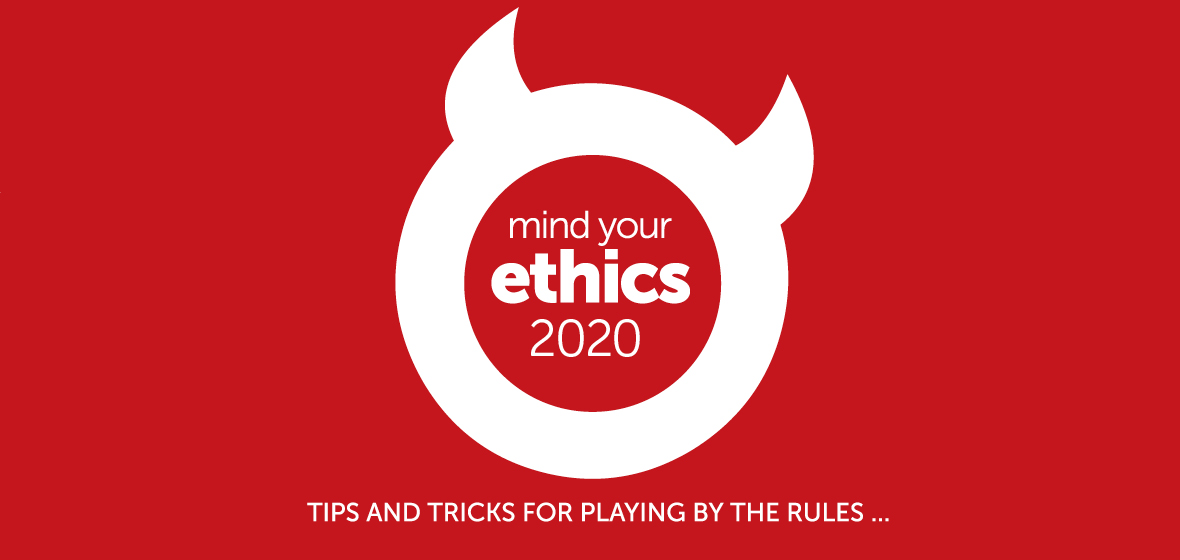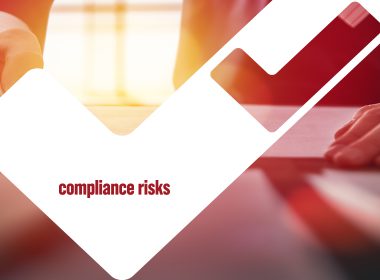A tale of hope, ethics and the ‘The Ghost of Christmas future’
By Paul Monaghan, Senior Ethics Lawyer
LSJ Issue 73, December 2020
Lawyers are a talented and resilient lot. We learn from years of rigorous study at university, often in law schools that teach law by reason and logic. However, when in practice we learn from the more difficult teaching methods based on circumstance and experience, which are often described as the ‘school of hard-knocks’. After this annus horribilis, even the most experienced members of the profession have had to endure hardship, stress and difficulty.
For many, the thought of some hideous karma being unleashed upon us, due to some past transgression may have come to mind. It is easy to think of the conduct of some lawyers to whom this would be an appropriate explanation.
Others may think of Scrooge being haunted by the ghosts of Christmas past and present and yet being most fearful of what may be still to come, with the Ghost of Christmas future soon to visit. However, the lesson of the story is that Scrooge and his future can be changed for the better, when applying constructive actions and ethical practice.
Problems that may be waiting in our future, clients ready to be unleashed like a banshee, will always await the lawyer at the commencement of every year.
However, as lawyers we have developed coping mechanisms that allow us to endure the most difficult of circumstance, which are reflected in our conduct rules that “… assist solicitors to act ethically and in accordance with the principles of professional conduct established by the common law and these conduct rules …”.
When we cast back our thoughts of this year, the professional standards we have adhered to and our ethical conduct have been more important than ever. They have been the tools of survival and resilience, allowing us to continue legal practice under such hardship.
The ethics department extends to readers our best wishes for Christmas and the New Year. For all that you have endured this year, a well done to you all.
Back to top
Is there any ADR for ethics?
By Linden Barnes, Senior Ethics Lawyer
LSJ Issue 72, November 2020
Of course. In fact, it would often be unethical NOT to try ADR before raising an ethical issue with a regulator. It could be a breach of Conduct Rule 32 and our obligation to ensure we never make an unfounded allegation against a colleague. Here are three options to consider:
- Bridge the social distancing: The first option is particularly appropriate in these days of continued physical distancing. This is simply talking to your colleague on the phone. Now I know this may not actually be an easy step, and some solicitors say to me it is an impossible one in certain circumstances. Hopefully, that is not the case for you, and picking up the phone puts a different perspective on the matter and resolves the ethical issue.
- Order online: At the Ethics Department, we have been giving ethics guidance online and on the phone since long before we all turned to online ordering seven months ago. You may be able to invite your colleague to contact us as well. We will talk to you about the Conduct Rules and how you might apply them to the situation. We have the benefit of being removed from the immediacy and bring along that fresh set of eyes.
- Go before the Senate Committee: Committees, particularly for judicial aspirants in the US, look like they can be rather gruelling ordeals. The Ethics Committee is definitely not that. If you and your colleague agree, then the Ethics Committee can give you guidance. It is completely voluntary. All you need to do is put a short submission in writing before the Committee.
ADR might just be the cure.
Back to top
Beating the blues by ethics
By Paul Monaghan, Senior Ethics Lawyer
LSJ Issue 71, October 2020
Every day, lawyers focus with intensity upon the legal issues of which they have carriage. The picture of lawyers diligently working through every nuance of the law, problem solving and carrying the load that otherwise would be imposed upon their client is a common depiction of the modern law firm.
At night, many lawyers toss and turn, restless and stressed, often replaying their case and the ethical issues that have arisen. Over time and relentless pressure, this bleak picture gets worse and develops into the spiral of depression, alcoholism, substance abuse and, regrettably, sometimes self-harm. This portrait of horror is often referred to in the most chilling of all descriptions: “just another day in the office”.
All is not lost. It does not have to be like this. There are reasons for having conduct rules, as they provide both solutions and protection for the lawyer in practice. Difficult ethical circumstance can push even the most hardened stalwart of the legal profession to breaking point. How to deal with and solve these problems is the purpose of developing rules that govern a lawyer’s conduct under such adverse circumstance “… conduct rules are … to assist solicitors to act ethically and in accordance with the principles of professional conduct established by the common law and these Rules …”. (Rule 2)
The Law Society provides ongoing assistance to every lawyer through the Professional Support Unit, in particular with an emphasis on key topics of ethics, costs and regulatory compliance. When you have a problem that just won’t go away, please call us to discuss it and work through a solution. Additional counselling and help to all lawyers suffering distress is available through the excellent Solicitor Outreach Service by calling 1800 592 296.
The modern lawyer shares common characteristics with the ancient warrior: “When knocked down seven times … you must get up eight times.” The Law Society is always available to help you get back on your feet each time.
Back to top
My own legal matter – surely I am the best solicitor for that?
By Paul Monaghan, Senior Ethics Lawyer
LSJ Issue 70, September 2020
Do I start with “A fool for a client …” or “It was bluebell time in Kent …”? Is the latter only relevant to the fact that it is bluebell time in Sydney? No, it is also relevant because, if you know the rest of Lord Denning’s judgment (Hinz v Berry [1970] 2 QB 40), it was about a horrible car accident. My point is, we might think we are the best solicitor for our own legal matter, that the bluebells look beautiful, but there are hazards beneath. Here are three that frequently come up with queries to the Ethics hotline:
- Our obligation to act with “professional independence” (Rule 4). We would all struggle to step aside from our own interests and be dispassionate about the matter, however clinical it might be. And family law and criminal matters, for instance, are unlikely to be clinical. (See Bell Lawyers Pty Ltd v Pentelow [2019] HCA 29 at 18)
- The no-contact rule (Rule 33). Can we communicate directly with the other party? The Ethics Committee’s FAQ notes: “doing so may give rise to an argument that the solicitor has (possibly inadvertently) used their skill and expertise as a solicitor to gain an unfair advantage or to exercise undue influence”. They recommend communicating with the other solicitor instead.
- Conflict with other clients (Rule 12). Who else are we acting for at the same time? It might be a simple situation where we are the only client, but it might be a tangled web of family issues involving relatives, companies, trusts and superfunds. We might not even realise there are other clients involved because we are not clearly analysing the situation. That directly links to our lack of professional independence.
As the Law Society’s own ad campaign said, “Stop looking for advice in all the wrong places. Consult a lawyer instead.” It will give you more time to enjoy those bluebells.
Back to top
Some curious issues on ethics and costs
By Linden Barnes, Ethics Lawyer
LSJ Issue 69, August 2020
With legal practice having to adapt ever more quickly due to the rapid changes forced upon us from current events, it is worth noting some curious issues of ethics and costs.
Technology has allowed solicitors to work remotely yet still have access to files and databases that normally would be contained in hard copy within the office environment. Yet we can access these remotely, often working on previously large and bulky files with the click of a mouse or use of a memory stick.
The technology may change, but every solicitor still has obligations regarding client documents. The solicitor must ensure that, “upon completion or termination of the law practice’s engagement, that the client or another person authorised by the client, is given any client documents … unless there is an effective lien.”
This will also include producing copies of any part of the file that is contained in electronic form.
However, if the file is retained it must be stored by the practice for a period of seven years. The nature of file storage is not limited to hard copies, as electronic means are becoming increasingly used. However, electronic storage must be in a form that permits accurate retrieval. A common problem is ensuring that electronic storage is safe, confidential and the systems of software and hardware operate over the archive period. Some systems may not remain operative over seven years or beyond and are unsuitable.
Significant costs may be borne by the solicitor for file storage. However, a solicitor ‘must not charge for the storage of documents, files or other property on behalf of clients, or for retrieval from storage of those documents, files or other property … unless the client has agreed in writing to such charges being made’.
The costs of legal practice may include these costs borne by the solicitor, when dealing with the use and storage of confidential information and client documents.
Back to top
Has the pandemic changed our ethical rules?
By Linden Barnes, Ethics Lawyer
LSJ Issue 68, July 2020
No. The rules have not been rewritten. Like during other novel situations over the centuries, the rules stay the same. They simply apply to the novelty. Let us take some examples.
1. Confidentiality: We have all been working in different surrounds. The pots and pans of kitchens have featured as backdrops to many an online meeting, as has the occasional family member or pet. Now, while Fido the family mutt is probably not a confidentiality risk, the same cannot be said for the family member, particularly if they happen to be the solicitor acting for the other side. It is always good to have a confidentiality plan if we are taking information or having conversations outside our “proper” office.
2. Communications: While our standards of dress may have dropped, our standards of address cannot do likewise. This is particularly relevant to online court where there have been issues from its inception, long before the pandemic, about solicitors not treating it with the necessary formality or approaching the bench without the consent of all the other parties. In any situation, court or otherwise, courtesy and clarity are always required.
3. Remote witnessing: Here was a classic situation where the locking down of nursing homes in particular created a significant issue with how we take instructions and witness signatures. The response was an emergency regulation. But the ethical rules never wavered – competent instructions, and accuracy and honesty in terms of the witnessing.
So, whatever the new normal of our world looks like, we can rely on unchanging ethical rules.
Back to top
What are our obligations when outsourcing elements of our practice?
By Paul Monaghan, Senior Ethics Lawyer
LSJ Issue 67, June 2020
The world is changing, with current events accelerating the change in legal practice. One area that will be of interest to those seeking to stay competitive during such change is the increasing use of ‘outsourcing’ by law firms.
With the economics of operating a legal practice requiring many firms to review their operations to minimise costs and stay competitive in the legal market, consideration must be given to professional obligations when entering commercial arrangements to outsource administrative functions.
In doing so, it is important to consider Rule 9 of the Solicitors’ Conduct Rules and the implications of confidentiality where “… a solicitor must not disclose any information which is confidential to a client and acquired by the solicitor during the client’s engagement to any person”.
Increasingly, modern technology allows the rapid movement of information, and this has allowed the development of service providers to law firms which can develop economies of scale and provide administrative services far cheaper than retaining support staff within the traditional law firm model.
A trend is developing for many of these service providers, such as litigation support or executive services, to approach solicitors with cost-effective business solutions, promising positive economic benefits for using their services. If engaging such service providers, added care should be taken, as often such agreements do not include specific information and assurances on security and maintaining standards of confidentiality. Solicitors who use these services and release information for processing should be aware that they are still subject to the obligation of confidentiality.
There should be a raised awareness for solicitors to take all necessary steps, such as ensuring consent from a client for disclosure to third parties when outsourcing services, and having written confidentiality agreements to ensure compliance with the Solicitors’ Rule on confidentiality and maintain the integrity of their legal practice when dealing with the movement and use of confidential information.
Back to top
Are there any ethical issues in costs?
By Linden Barnes, Ethics Lawyer
LSJ Issue 66, May 2020
There are so many ways in which being paid to do our job has potential ethical ramifications. I was reminded of this because this is my first column when I am joined by the wisdom of my costs colleagues and their column. Let’s start with the one they raise (shameless cross-promotion) and then two others to form a top three:
1. Conflict – as you can see from the costs column, putting on a caveat can be a conflict between us and our client. To give another example, and this can arise for those of us working in-house, there could be a conflict if our pay is linked to the success of a project. How might that influence us advising that the project is unlawful and must not proceed?
2. Undertakings – always best to avoid. If we make a promise, then we are absolutely bound to it, even if we are prevented from complying because of someone else’s actions. That is why we must not give an undertaking that we cannot control. So, for costs, there are two important points to remember. First, we cannot control our client. Second, they are the payer, not us.
3. The no-contact rule – is it appropriate for us to directly chase a former client for payment rather than do so via their new solicitors?
There is considerable disagreement on this point.
However, as with so many ethical issues, courtesy wins out. It is best and courteous practice to go via the new solicitors.
In this world of social distancing, ethics are not breaching the rules by being integral to costs. The Ethics Department hopes you are coping well in these difficult times.
Back to top
Lawyers can be a charming lot when we want to be. However, we deal with many people under different conditions. Pressure, conflict, adversarial circumstances and hostility can be a testing time for even the most skilled practitioner.
By Paul Monaghan, Senior Ethics Lawyer
LSJ Issue 64, March 2020
Before we emulate a volcano building up to an explosion, perhaps we should reflect on what our obligations to the court, clients and other members of the profession entail. Rarely have I heard a lawyer accuse another of being too polite or courteous, yet this is a fundamental duty upon every practitioner.
What are our obligations when dealing with others?
It should be carefully noted by all practitioners that “A solicitor must act in the best interests of a client in any matter in which the solicitor represents the client … and be honest and courteous in all dealings in the course of legal practice …” (Solicitors rule 4).
At the commencement of each year, many practitioners will consider how to promote their legal practice and how they may “make a name for themselves” to become well known amongst clients and their professional colleagues.
That is quickly established by doing something unethical or discourteous to the court, client or other legal practitioners. You will never be forgotten and always remembered, but for all the wrong reasons.
Worse still, disciplinary proceedings may also be taken against you that may tarnish your reputation permanently.
Honest and courteous behavior does work. Consider the true nature of legal persuasion as per suasio, or via sweetness, in all dealings in the course of legal practice.
A good name is the most important asset a legal practitioner may have and should be wisely protected. Success in law is achieved by the most ethical.
Back to top
I want to help my distressed client – how sealed are my lips?
By Linden Barnes, Ethics Lawyer
LSJ Issue 63, February 2020
Before we emulate a volcano building up to an explosion, perhaps we should reflect on what our obligations to the court, clients and other members of the profession entail. Rarely have I heard a lawyer accuse another of being too polite or courteous, yet this is a fundamental duty upon every practitioner.
What are our obligations when dealing with others?
It should be carefully noted by all practitioners that “A solicitor must act in the best interests of a client in any matter in which the solicitor represents the client … and be honest and courteous in all dealings in the course of legal practice …” (Solicitors rule 4).
At the commencement of each year, many practitioners will consider how to promote their legal practice and how they may “make a name for themselves” to become well known amongst clients and their professional colleagues.
That is quickly established by doing something unethical or discourteous to the court, client or other legal practitioners. You will never be forgotten and always remembered, but for all the wrong reasons.
Worse still, disciplinary proceedings may also be taken against you that may tarnish your reputation permanently.
Honest and courteous behavior does work. Consider the true nature of legal persuasion as per suasio, or via sweetness, in all dealings in the course of legal practice.
A good name is the most important asset a legal practitioner may have and should be wisely protected. Success in law is achieved by the most ethical.




